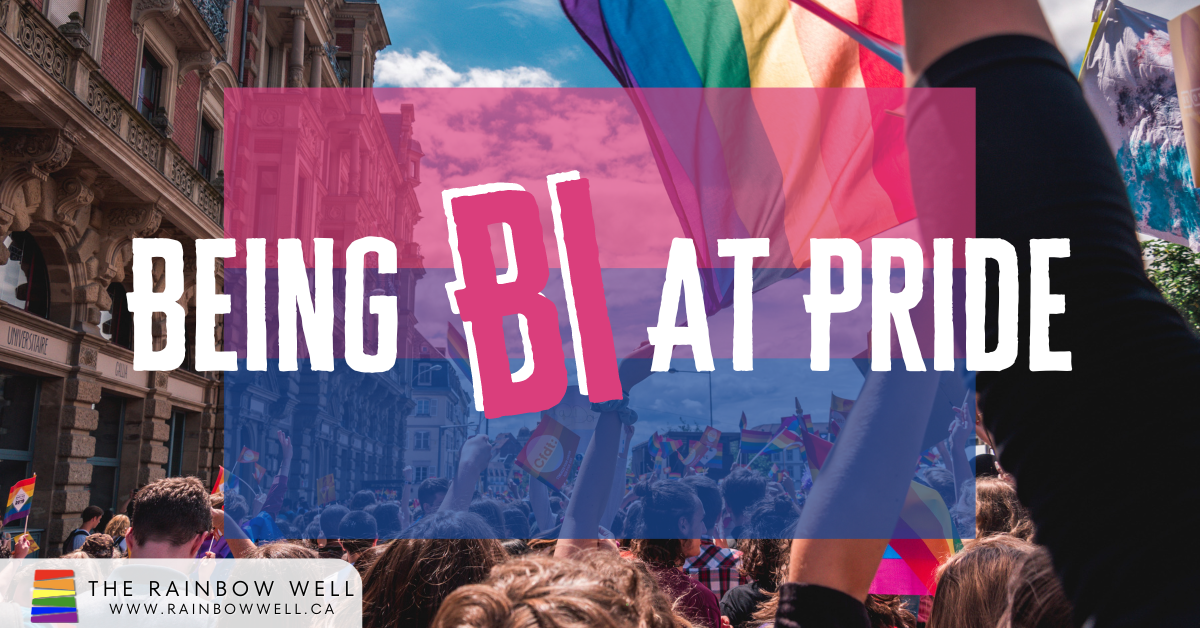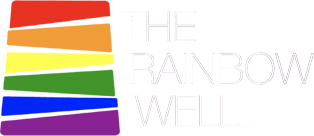Being Bisexual At Pride: Struggle & Solidarity

by Jamie Arpin-Ricci
Every year during Pride month, it has become a tradition for my family and our neighbours family to attend events together with our kids. My neighbor and I both identify as bisexual/pansexual, and we are married to opposite-sex partners. Often, upon arriving, my neighbours husband and I walk together with my son, while our wives walk together with the little ones. As we merge with the crowd, it is easy to see on the faces of those passing us that they presume we are a set of gay and lesbian couples. There are lots of smiles and greetings, with “Happy Pride!” being exchanged endlessly.
However, when I attend other Pride events with my wife by my side, the response is often very different. Sometimes it is direct and explicit, like the times when people scowl at me and mutter, intentionally loud enough for me to hear, “Breeder.” Yet the hardest encounters are when they see (by a flag pin or something external) or hear directly from me that I am bisexual, and their response is dismissive, mocking, or even aggressively angry. “Stop colonizing queerness, you f_king spicy straight!” one person spewed at me.
This is one of the tensions I feel every year during Pride, and in fact, all year in other queer spaces. Far too many bisexual folks (and other non-monosexual people), especially those in straight-presenting relationships, are treated as outsiders and even enemies to the community. The open disgust many gay and lesbian folks express at the idea of dating a bi person and the reasons given (e.g., “they are disease vectors”; expressions of disgust at the idea of them being with opposite-sex partners; accusations of sexual selfishness) often lead some bi folks to simply identify as either straight or gay to avoid rejections from both communities.
Even when the response is not openly hostile, the microaggressions abound. There is the lip service inclusion of bisexuals while actively undermining non-monosexual identities, relationships, and experiences. The casual anecdotes about “all” the bisexual people they know eventually “truly coming out” as gay/lesbian. The offhand suggestion that we aren’t “queer enough.” All these contribute to the fact that bisexual people deal with some of the highest mental health impacts in the wider 2SLGBTQIA+ community.
Without question, things have gotten better on many fronts. Bisexual inclusion and awareness are on the rise. Yet the pervasive dynamics of biphobia and bi-erasure, alongside entrenched monosexism, mean that bisexual folks struggle to find support and community even among those who casually claim us in the 2SLGBTQIA+ initialism without always meaningfully embracing us.
While these issues persist throughout the year, they can be especially painful and evident during Pride. It is a time when queer folks often have greater access to safe spaces, public allyship, and heightened social awareness. Despite the progress made, there is still much work to be done. I often turn to my transgender and non-binary friends during Pride because, in addition to many of them identifying under the bisexual umbrella, they also understand better than anyone what it is like to have limited and often conditional acceptance in our wider community.
As we take this season to consider the radical origins of the Pride movement—a fierce riot in resistance to societal and state-sanctioned oppression and violence—let us not forget that in addition to celebrating the victories we’ve achieved, we must push the line further for those still struggling for true solidarity. This includes not just bisexuals, but also trans/non-binary folks, intersex folks, BIPOC, immigrants/refugees, and more. The blood and tears shed, the lives lost, and the generations of tireless activism must be honored with an equally radical embrace and celebration of all 2SLGBTQIA+ folks.
Remember, this Pride month The Rainbow Well needs you! We are looking 40 people willing to commit to $25 a month for one year! That’s less than a dollar a day to put life-saving resources into people’ hands. Click here for details!

